CBD is commonly used among Americans. While it can be beneficial for chronic pain, sleep disorders, anxiety, and more, there are a lot of misconceptions about this particular cannabinoid. Join us as we debunk many of the most popular CBD myths.
What is CBD?
Cannabidiol CBD is a chemical found in marijuana, and the cannabis plant is used to manage various health conditions such as inflammatory and neuropathic pain. CBD is found in marijuana, hemp, and the Cannabis Sativa plant. Hemp-derived CBD products do not contain THC (tetrahydrocannabinol), the chemical in marijuana that causes psychoactive effects referred to as a high.
What are the benefits of using CBD?
CBD manages various conditions, from skin irritation to neurodegenerative disease. More research is constantly being done to learn more about CBD and its benefit to those with illnesses. Talk with your marijuana healthcare professional for the latest additions to these conditions.
CBD can have medical benefits for those who suffer from health conditions such as:
- Multiple sclerosis & Tuberous Sclerosis complex
- Alzheimer’s disease
- Parkinson’s disease
- Huntington’s disease
- Schizophrenia and other psychiatric disorders
- Inflammatory Bowel Disease
- Crohn’s disease
- Arthritis
- Chronic pain
- Nervous system disorders & Nerve pain management
- Low & High Blood Pressure regulation
- Insomnia
- Epilepsy
- Seizures, Dravet syndrome, Lennox Gastaut Syndrome
- Alcohol addiction & prescription drug withdrawal symptoms
- Cancer treatment
- Dementia & Alzheimer’s Disease
- PTSD
CBD and Anxiety
CBD has been shown to affect different forms of anxiety disorders positively. It has been shown to reduce stress. CBD has beneficial effects on general anxiety disorder and other severe anxiety conditions, including post-traumatic stress disorder, obsessive-compulsive disorder, and social anxiety disorder. Studies in mice and rats showed lower heart rates and less stress with CBD.
A recent study that used a simulated public speaking test to show anxiety levels in speakers showed significant promise that CBD can help reduce fears and anxiety associated with speaking in front of a group. Continued research is being done to see how CBD can manage various forms of stress.
CBD and Chronic Pain
CBD has anti-inflammatory qualities and can reduce pain and even fully treat pain in some patients. It is also an antioxidant and can help reduce long-term inflammation. CBD interacts with cannabinoid receptors that can block chronic pain signals in the brain and trigger an increased immune response.
CBD and Sleep
CBD has been shown in research studies to help people fall asleep, stay asleep, and improve sleep quality. The endocannabinoid system has a part in maintaining several body functions, including sleep and regulation of circadian rhythms. CBD oil can offer a night of better sleep and thus a healthy lifestyle to follow.
CBD and Seizures
The FDA approved a prescription-strength dose of CBD for severe epilepsy, Epidiolex oral solution, from GW Pharmaceuticals. Preclinical evidence proves that CBD oil has been shown to reduce seizures by activating the CB1 receptors. More research is currently being done on taking CBD for conditions like Dravet syndrome and Lennox Gastaut syndrome.
High CBD strains
CBD-rich strains can help with stress, nausea, joint pain, inflammation, arthritis, anxiety, depression, moodiness, and general pain relief. Below, we have included six of the best high CBD strains out there today.
Popular CBD Myths: Debunked
Here, we tackle nine of the most common misconceptions regarding Cannabidiol CBD, its uses, and its effects on the human body and mind.
CBD and THC have the same effects
CBD is typically derived from hemp, unlike THC which comes from marijuana plants. CBD and THC cannabinoids are present in hemp flower and marijuana plant matter. Hemp tends to have more CBD and a less potent level of THC, resulting in minor psychoactive effects and therapeutic, medicinal benefits.
Is there THC in CBD oil?
CBD-infused extract derived from a marijuana plant can contain high levels of THC and will cause an individual to feel high. CBD oil that has higher concentrations of THC is not legal all over the country. This type of CBD oil is legal in areas where recreational marijuana has been legalized, as well as in places where medical marijuana has been approved.
CBD oil is an isolated extract of a single cannabinoid, unlike hemp oil which contains over 140 different beneficial cannabinoids, and no THC or CBD. There are full-spectrum products that contain all cannabinoids including CBD and terpenes, as well as broad-spectrum CBD which contains cannabinoids and terpenes without THC. Some broad-spectrum THC-free CBD oils are on the market. CBD isolate is pure CBD, most often marketed as pure or 99% pure CBD.
CBD is illegal
Is CBD legal? Yes. The Farm Bill of 2018 made cannabidiol CBD with less than 0.3 percent THC legal in the United States. Prescription-strength legal CBD oil derived from the cannabis plant has been approved by the FDA as a practical option for seizures and is often used to help patients with epilepsy. Research is ongoing to learn more about the varying ways CBD can be used as a tool for public health issues.
Both hemp and marijuana can contain CBD, but hemp is federally legal. A general starting point in CBD legality under federal law: If CBD comes from hemp, it is legal; it is illegal if CBD comes from marijuana. Although hemp-based CBD might be federally legal, some states still consider any cannabis product illegal. It’s crucial to understand your local laws for this reason.
CBD only comes from Marijuana plants
CBD comes from hemp and cannabis Sativa, however, it can be present in Marijuana plants usually along with the presence of THC in low amounts. Some people prefer the benefits of taking the two chemicals simultaneously.
CBD is known to counteract the effects of THC by blocking CB1 receptors. CBD can induce calmness and relaxation but will not cause the same psychoactive solid reaction that THC does. CBD also has some neuroprotective properties and has been shown to slow some degeneration of neurons.
CBD works right away
CBD can take at least thirty minutes to kick in, sometimes an hour if taken in edible form. It can also take a few weeks to start feeling significant benefits. The right dose of CBD oil depends on many things. The product and level of CBD contained, and the tolerance and experience of the individual are all critical factors. Many people think CBD cures cancer when it in fact helps with symptoms.
A person’s weight and body chemistry also play a role. It is always best to start small to see how your body reacts to a CBD product and reduce anxiety around trying something new. Smaller doses start around 20 mg of CBD daily and increase higher doses.
There are no CBD side effects
Though it’s typically well-tolerated by the human body, CBD can cause adverse effects like dry mouth, diarrhea, reduced appetite, and drowsiness. Cannabidiol CBD can also cause adverse effects by interacting with other medications (blood thinners or blood pressure drugs) or dietary supplements you’re taking.
CBD gets you high
CBD will not make you feel high; it does not have the same interactions with the brain to cause an altered mental state. It will not affect memory, mobility, or body temperature as THC can. CBD has no effects that can be associated with abuse or dependency. Suppose you have any doubts or safety concerns. In that case, we recommend talking with a healthcare professional to find the right CBD product or compare other medications or dietary supplements that may work better for your needs.
CBD won’t make you fail a drug test
Actually, CBD can show up on drug tests. CBD, like THC, is stored in the body’s fat cells and can be detected on drug tests for weeks after being used. Not every drug test will screen for CBD. Because many CBD oil products also contain THC, it is possible to test positive for THC when using a CBD product. Make sure to read the labels of any CBD products before use to see what cannabinoids they contain.
CBD is addictive
CBD is not addictive; however, marijuana can promote dependence among some users. Marijuana use issues are frequently linked to dependency, which occurs when a person has withdrawal symptoms after they stop using the drug. Irritability, mood and sleep problems, decreased appetite, cravings, restlessness, and physical discomfort are common among marijuana users. These symptoms peak within the first week after quitting and last up to two weeks.
Hemp seed oil and CBD oil are the same things
Hemp oil has a higher CBD content than marijuana, and many CBD products contain hemp-derived CBD. Hemp seed oil comes from the Cannabis Sativa family and has long been used to make clothing, paper, and cloth for medical purposes.
Hemp-derived CBD oil
Hemp oil has a higher CBD content than marijuana, and many products on the market contain hemp-derived CBD rather than marijuana-derived CBD products. Hemp seed oil comes from the Cannabis Sativa family and has long been used to make clothing, paper, and cloth for medical purposes.
Cannabis-derived CBD oil
CBD is found in all strains of cannabis, both Indica, and Sativa. Marijuana contains a much higher THC content than hemp and contains other chemicals that can aid and bolster the effects when you extract CBD. Cannabis plants also have higher levels than hemp plants.
The CBD molecule is the same regardless of where it is derived from; however, cannabis-based CBD products can contain higher levels of THC than the 0.3% hemp products have.
Ways to Use CBD
CBD can be taken and used in multiple ways. There are four main ways CBD-derived products are generally utilized.
Topical CBD
You can use CBD-infused products directly on this skin. While this does include things like patches, salves, creams, lotions, and more many people will apply the oil directly to their skin.
Ingestion
Ingestion of oral CBD can be done through drops, tinctures, capsules, beverages, or added to foods. Gummy candies, chocolate, coffee, and even savory snacks.
Sublingual
Sublingually taking CBD means placing a few drops of medical cannabis tincture or oil under the tongue and allowing it to be rapidly absorbed through mucous membranes located in the mouth. Sublingual CBD can have faster effects and is a discreet way to take CBD, which appeals to many people.
Inhalation
Inhaled CBD has become an increasingly popular way to use the drug. If choosing to use inhaled CBD products, make sure that is their intended purpose because not all CBD products can be inhaled. Always read all product labels, warnings, and packaging before use. Hemp oil is rarely, if ever, seen in inhalation intended products.
– Are there any myths about CBD related to the information on its label?
When it comes to understanding CBD label instructions, there are some myths that need to be dispelled. One common misconception is that higher potency always means better results. In reality, proper dosing and individual tolerance play a bigger role. It’s crucial to read and follow the label instructions carefully.
DIY CBD oil recipe
Here’s an excellent CBD-infused oil recipe with no harmful chemicals or additives.
Materials
- A double boiler
- Mixing Bowl
- Airtight storage container
Ingredients
- five grams of beeswax
- twenty grams of coconut-derived MCT oil
- High-quality CBD oil
- Half a gram of carrier oil
- 1/3 cup finely shredded coconut (for taste)
Instructions
- Place five grams of beeswax in a double boiler and melt it over low heat, stirring constantly.
- Add twenty grams of fractionated coconut oil to the melted beeswax, continuing to stir.
- Add natural CBD oil to the coconut oil mixture and continue stirring over low heat until thoroughly blended.
- Remove from heat and cool.
- Once the mix cools into a semisolid state, add 0.5 grams of essential oil to the mix in the double boiler.
- Place the gluten-free liquid in a storage container while still pourable.
- The CBD oil will be good to use for wellness benefits for six months to a year.
Final Thoughts
CBD can have various health benefits for humans and pets, including pain management. Cannabidiol CBD can be used in many different forms and settings. Remember to learn your state’s medical marijuana laws, always purchase products from reputable dispensaries and consult a healthcare professional or knowledgeable budtender if you have questions or concerns.
Leafy Mate can help you navigate getting a medical card, connect you with providers in your area and find deals on top CBD products.

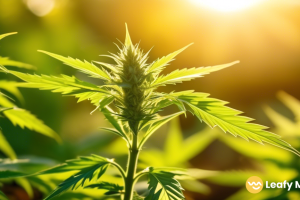
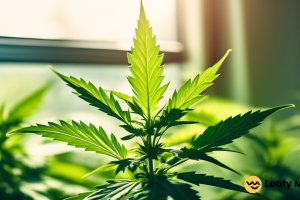
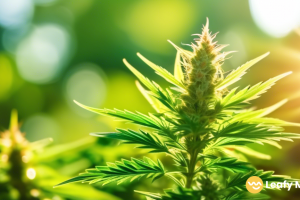




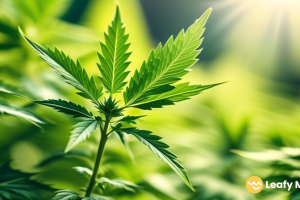
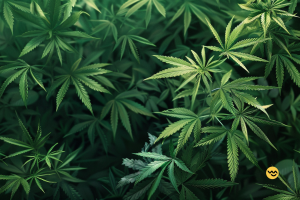
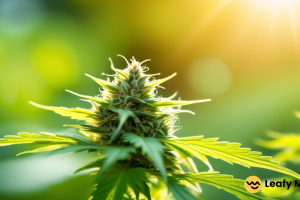
Leave a Reply